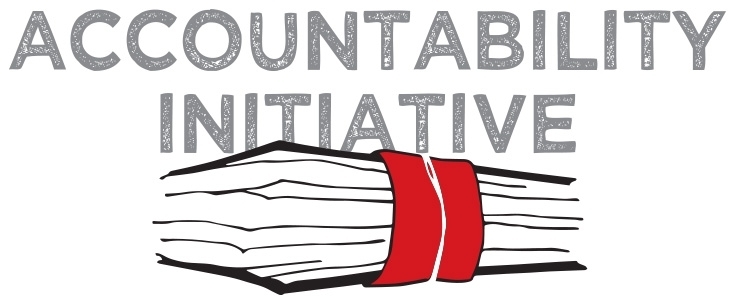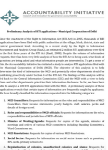
Right To Know Day, 2010: 5 Billion Now Have Right To Information
29 September 2010
Over 90 countries representing nearly five billion people have now adopted laws or national regulations on RTI. However, over half the countries of the world have not yet adopted RTI laws and many that have done so have failed to implement them adequately. There have also been efforts in several countries to weaken laws.
ARTICLE 19 offices and staff are participating in events in eight countries including Bangladesh, Kenya and Mexico to celebrate Right to Know Day 2010 , and have issued a statement of some of the RTI advances and setbacks over the year:

RTI Advances
– New Laws and Recognition. The number of jurisdictions with RTI laws continued to grow. Over the past year, new laws were adopted in Liberia and Bermuda. Many others have improved their laws. In Australia, the archaic Freedom of Information Act, 1982 was substantially amended and improved. The Organization of American States adopted a model RTI bill for adoption across the Americas and the Caribbean. The adoption of related laws also continued to expand – in Uganda for example, a comprehensive whistleblowing law was adopted.
– Constitutional Rights. Increasingly, countries are including RTI in new constitutions. In the past year, the recently approved Kenyan constitution includes substantial RTI provisions while Article 19 of the Pakistani constitution was amended to include RTI. A decision in the Canadian Supreme Court fell short of fully endorsing RTI as a constitutional right. Now, over 80 countries recognised right to information as a constitutional right.
– New Bills. There are more efforts in countries around the world to consider RTI laws. In total, over 50 countries have proposals to adopt laws pending. Some of the more recent efforts include Argentina, Bhutan, Pakistan, Senegal, Sierre Leone, Spain, Ukraine, and the Malaysian state of Selangor.
– Environmental Information. The right to environmental information was strongly advanced as a global right during the last year. The UN Environmental Programme (UNEP) released new global guidelines for the development of national legislation on access to information, public participation and access to justice in environmental matters in June 2010. World leaders in December agreed to The Earth Summit 2012, which may lead to a new global treaty on access to environmental information.
– Open Data. Both the US and the UK governments launched new open data sites to make raw datasets of public information available for the first time. This allows for the public to do its own analysis of policies and expenditures. In the UK, this included detailed spending information.
– World Bank. The World Bank transparency policy released in December 2009 substantially improves the transparency of the Bank. While it is not perfect, there is hope that the policy will set the standard for other international financial institutions.
RTI Setbacks
– Stalled Campaigns. Legislation in Brazil and the Philippines reached the final steps but due to lack of political leadership, both failed at the last hurtle and will have to be reintroduced next year. Efforts in Yemen, Cambodia and Vietnam have also faltered due to lack of political will. There has been no repeal of the infamous Access to Information and Protection of Privacy Act in Zimbabwe following the change in government there.
– National Security. New secrecy legislation proposed in South Africa in the last year would seriously undermine RTI. Anti-terrorism laws are repeatedly used to justify hiding public information and harassing the media.
– Failure to Implement. Many countries have adopted RTI laws over the last few years but have not seriously implemented them. The laws in Angola and Uganda have not been substantially implemented. There are continued efforts by government officials in India to amend the excellent Right to Information Act in order to weaken it.
– Development. The Millennium Development Goals (MDG) summit recognised the importance of transparency and the free flow of information as a central tool in promoting development and achieving the MDGs but failed to substantially include requirements for it in the action plan.
– Climate Change. Freedom of expression and access to information was severely limited at the failed Copenhagen Climate Change Summit. The resulting Copenhagen Accord failed to include substantial transparency rights essential to ensuing adequate public participation.





